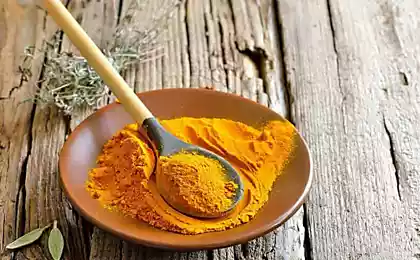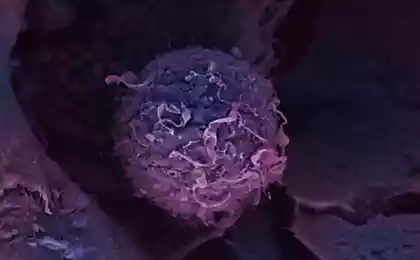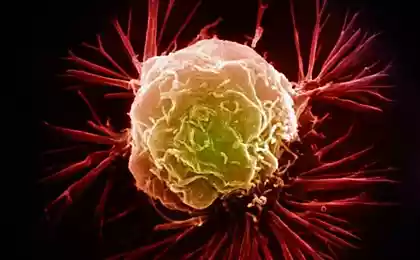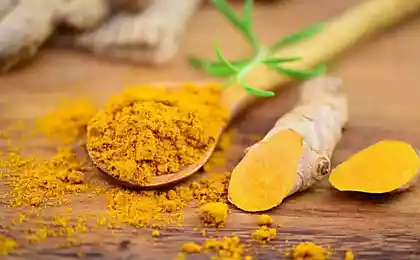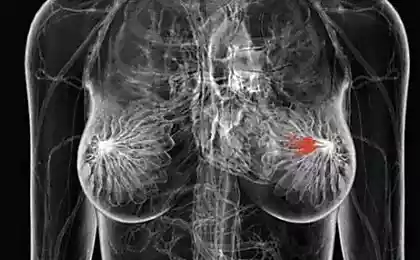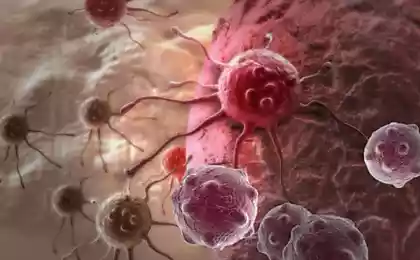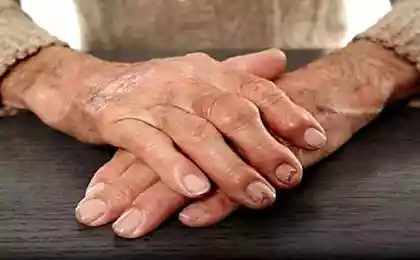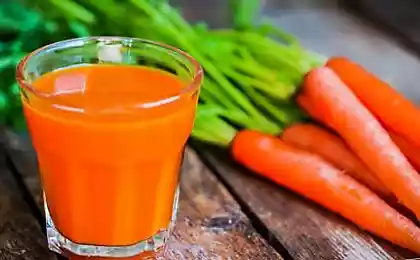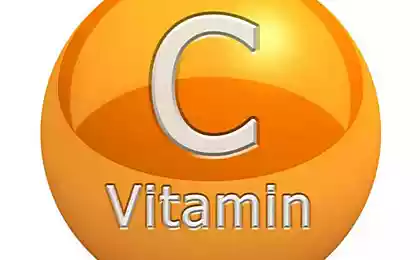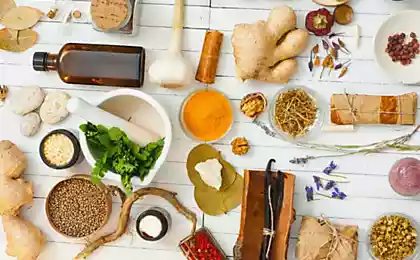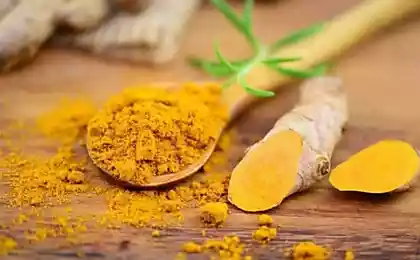711
Turmeric is a UNIQUE polyphenols for Your health
Turmeric is a very famous condiment, which bears different names, from E100 to Comerica. You can also find other names: turmeric extract, curry extract, diferuloylmethane, Jiang Huang, curcuma, 1,7-bis-{3-methoxy-4-hydroxyphenyl}-1,6-heptadien-3,5-dione. In this article I will touch on the basic medical aspects of action of turmeric.
Twenty three million three hundred sixty six thousand seven hundred fifty three
Turmeric is a unique polyphenols for your health. Curcumin is not only.
Curcumin is the main curcuminoid, a part of turmeric root, curcuminoids also include demethoxycurcumin and Bis-demethoxycurcumin. It is due to the curcuminoids turmeric root has a characteristic yellow color. Curcumin is diarylheptanoids. This is the main curcuminoid popular South Asian spice turmeric, which is a member of the ginger family (Zingiberaceae). Two other curcuminoids turmeric are demethoxycurcumin and bis-demethoxycurcumin. Curcuminoids are natural phenols responsible for the yellow color of turmeric.
The curcumin molecule is unique because it is a separate class of polyphenols (compared to other classes of flavonoids, stilbenes, etc.). Has potential anti-inflammatory action, which is considered sufficient protection against some forms of cancer progression. However, curcumin has additional anti-cancer effect, which does not depend on its anti-inflammatory action and, thus, is quite the investigated substance in the prevention and treatment of cancer.
Eighty one million five hundred three thousand eighty one
Draw your attention to most famous studies of curcumin were carried out in animal models and in vitro, very few studies were of sufficient quality. Curcumin has not yet been approved for the treatment of any human diseases.
Metabolism and body weight. Effects of turmeric is similar to many other spices: improved insulin sensitivity and decreased appetite. It is believed that curcumin inhibits a feedback mechanism, inhibiting the production and reduce the activity of insulin ; also curcumin enhances the anabolic effect of insulin due to increasing sensitivity of cells to this hormone. Turmeric also reduces the desire for sweets and fatty, which makes it a great tool for weight loss.
To confirm the effectiveness of turmeric for weight loss have repeatedly conducted various studies, mostly on animals.So, American scientists conducted an experiment on mice and studied the mice upotrebljava food with high fat diet for 12 weeks. One group of mice received high-calorie food, seasoned with curcumin in the ratio of 500 mg of substance per 1 kg of feed, the other group did not receive curcumin. Mice in both groups consumed the same amount of food, indicating no effect of the substance on appetite. However, the mouse who ate curcumin, gained much less weight compared to mice not receiving it.
Curcumin had an impact on total weight loss in mice treated with the substance with food. They also recorded a decrease in the levels of cholesterol and fat in the liver in this group of mice. Consumption of curcumin resulted in a suppression of microvascular density in adipose tissue, resulting in the observed decrease in growth of blood vessels and consequently a reduction of body fat. The study confirmed that the increase in adipose tissue is influenced by the processes of angiogenesis and accumulation of lipids in fat cells.
Anti-inflammatory and antioxidant activityCurcumin is a powerful antioxidant and a powerful anti-inflammatory means, the intensity is not inferior to the anti-inflammatory drug such as ortofen. In this case curcumin, unlike the latter, does not cause inflammation in the stomach, leading to erosion and ulceration of the mucous membrane of the gastrointestinal tract. Curcumin relieves inflammation of the tissues, it is indispensable as an ally in the fight against arthritis, syndrome irritable bowel, asthma and other inflammatory diseases.
One of the main components in turmeric is curcumin, which is a very strong antioxidant. Curcumin to neutralize free radicals.In addition, turmeric has anti-inflammatory properties. In humans there are two responsible for the inflammation of prostaglandins: cyclooxygenase-1 (COX-1) and cyclooxygenase-2 (COX-2). While COX-1 is important in the body and ensures blood clotting, COX-2 is associated only with inflammation. Aspirin may prevent inflammation by blocking the production of both prostaglandins and turmeric only blocks the production of COX-2. Turmeric allows us to stop the inflammation without compromising other important functions of the body.
In the journal Drug Research published work according to which curcumin has properties similar to properties of aspirin (antiplatelet and prostacyclin modulating effect). Its effect is so strong that curcumin are advised not be taken in conjunction with other anticoagulants, including aspirin, to avoid uncontrolled bleeding.
Although the active component in turmeric is curcumin, some scientists believe that the product should be used in full, as anti-inflammatory properties may have other components. Turmeric is becoming more and more popular among doctors, and may soon become one of the drugs used by medicine to replace statins and protection of cardiovascular health.
It is not surprising that curcumin can help with inflammation, this plant can be extremely valuable in the treatment of certain autoimmune diseases, including graves disease and Hashimoto's thyroiditis. One study shows that curcumin helps in autoimmune diseases by regulating inflammatory cytokines such as IL-1 beta, IL-6, IL-12, TNF-alpha and NF-kappaB.
Another study confirmed that curcumin has an inhibitory effect on cytokines. Another study examined the ability of curcumin to modulate helper T cells CD4+ - mediated autoimmune disease, and results showed that curcumin can be used as a promising therapy.
Ninety eight million ninety three thousand seven hundred seventy three
Antitumor activity.Spices have shown their effectiveness in the fight against cancer in more than 240 scientific research last year alone. Scientists continue to present us with convincing evidence of the need for regular consumption of curcumin, as part of our usual diet.
Curcumin has been intensively investigated as potential drugs, in particular, as a potential anticancer drug for the treatment of some forms of cancer, in experiment in vitro on cell cultures, curcumin is able to induce apoptosis in cancer cells without cytotoxic effects on healthy cells. Clinical trials of the drug.
The results show that curcumin is particularly effective in protection against hormone-dependent forms of the disease such as breast cancer. It is able to induce apoptosis (normal programmed cell death) is the most resistant breast cancer cells lacking estrogen receptors.
Spices only affect the cancer cells, causing them to self-destruct by destroying the mitochondria that are the main driving force of the rapid growth of the tumor. The results show that curcumin slows the process of transformation of colon polyps into cancer cells, weakening the effect of Pro-inflammatory cytokines, called NF-KB. The curcumin stops the growth of cancer cells before they can form a tumor.
Forty million one hundred forty nine thousand sixty five
Neuroprotective action.
Of course, this is only the preliminary results obtained in animal trials. But if curcumin really has a beneficial effect on the psyche of people suffering from PTSD or other mental disorders, it takes the spice curry to a whole new level.
In the new study, psychologists from hunter College, it was discovered that curcumin can disrupt the formation of the dramatic memories in the brain, which inevitably arise after a traumatic experience.
American scientists plan to implement curcumin in experimental treatment of post-traumatic stress disorder (PTSD). "We showed that rats who were given food enriched with curcumin, there was a significant negative trend in the encoding of painful memories" — said the authors of the new study.
A study published in the Journal of Affective Disorders in June 2014 showed that in the treatment of depression drugs curcumin much more effective than a placebo. Clinical study in 2013 showed that the drugs curcumin helped better for depression than the antidepressants fluoxetine and imipramine, and had no side effects. It is assumed that the antidepressant effect of curcumin is mediated through the inhibition of monoamine oxidase.
Curcumin can increase levels of neurotropic factors in the brain. Thus, he postpones or even reverses some of the brain disorders and aging. Recent research scientists at the University of California (2011) showed that patients with Alzheimer's disease who took curcumin had improvement.
Fifty million three hundred thirty thousand seven hundred forty three
Assimilation and absorption The most effective way to increase the absorption of Curcumin (2000%!) is to take it with food with olive oil (since curcumin is fat soluble compound) and black pepper (to taste). Contained in black pepper piperine inhibits sulfation (i.e., neutralization) of curcumin in the intestinal epithelium and liver and its excretion back into the intestine and then feces from the body.
Side effect. During research the subjects for 3 months were given 12 grams of curcumin, and no abnormalities in their condition have been identified. However, given the penetrating ability of curcumin to the cells of the body, it should be understood that eating it with a spoon can cause damage to health. For example, in one of the clinical trials food additive e100 people were given 2 to 12 grams of curcumin, with the result that some of them were revealed slight nausea and diarrhea.
The only known serious side effect of curcumin — blood thinners, so it cannot be taken if you have or have surgery. Only large doses of turmeric or purified curcumin (several grams per day) for a long time can cause health problems, e.g., nausea, vomiting and diarrhea. In severe cases may develop ulcers of the stomach and worsen the clinical picture in diseases of the gallbladder. published Author: Andrei Beloveshkin
P. S. And remember, only by changing their consumption — together we change the world! ©
Join us in Facebook , Vkontakte, Odnoklassniki
Source: beloveshkin.com/2016/02/curcumin.html
Twenty three million three hundred sixty six thousand seven hundred fifty three
Turmeric is a unique polyphenols for your health. Curcumin is not only.
Curcumin is the main curcuminoid, a part of turmeric root, curcuminoids also include demethoxycurcumin and Bis-demethoxycurcumin. It is due to the curcuminoids turmeric root has a characteristic yellow color. Curcumin is diarylheptanoids. This is the main curcuminoid popular South Asian spice turmeric, which is a member of the ginger family (Zingiberaceae). Two other curcuminoids turmeric are demethoxycurcumin and bis-demethoxycurcumin. Curcuminoids are natural phenols responsible for the yellow color of turmeric.
The curcumin molecule is unique because it is a separate class of polyphenols (compared to other classes of flavonoids, stilbenes, etc.). Has potential anti-inflammatory action, which is considered sufficient protection against some forms of cancer progression. However, curcumin has additional anti-cancer effect, which does not depend on its anti-inflammatory action and, thus, is quite the investigated substance in the prevention and treatment of cancer.
Eighty one million five hundred three thousand eighty one
Draw your attention to most famous studies of curcumin were carried out in animal models and in vitro, very few studies were of sufficient quality. Curcumin has not yet been approved for the treatment of any human diseases.
Metabolism and body weight. Effects of turmeric is similar to many other spices: improved insulin sensitivity and decreased appetite. It is believed that curcumin inhibits a feedback mechanism, inhibiting the production and reduce the activity of insulin ; also curcumin enhances the anabolic effect of insulin due to increasing sensitivity of cells to this hormone. Turmeric also reduces the desire for sweets and fatty, which makes it a great tool for weight loss.
To confirm the effectiveness of turmeric for weight loss have repeatedly conducted various studies, mostly on animals.So, American scientists conducted an experiment on mice and studied the mice upotrebljava food with high fat diet for 12 weeks. One group of mice received high-calorie food, seasoned with curcumin in the ratio of 500 mg of substance per 1 kg of feed, the other group did not receive curcumin. Mice in both groups consumed the same amount of food, indicating no effect of the substance on appetite. However, the mouse who ate curcumin, gained much less weight compared to mice not receiving it.
Curcumin had an impact on total weight loss in mice treated with the substance with food. They also recorded a decrease in the levels of cholesterol and fat in the liver in this group of mice. Consumption of curcumin resulted in a suppression of microvascular density in adipose tissue, resulting in the observed decrease in growth of blood vessels and consequently a reduction of body fat. The study confirmed that the increase in adipose tissue is influenced by the processes of angiogenesis and accumulation of lipids in fat cells.
Anti-inflammatory and antioxidant activityCurcumin is a powerful antioxidant and a powerful anti-inflammatory means, the intensity is not inferior to the anti-inflammatory drug such as ortofen. In this case curcumin, unlike the latter, does not cause inflammation in the stomach, leading to erosion and ulceration of the mucous membrane of the gastrointestinal tract. Curcumin relieves inflammation of the tissues, it is indispensable as an ally in the fight against arthritis, syndrome irritable bowel, asthma and other inflammatory diseases.
One of the main components in turmeric is curcumin, which is a very strong antioxidant. Curcumin to neutralize free radicals.In addition, turmeric has anti-inflammatory properties. In humans there are two responsible for the inflammation of prostaglandins: cyclooxygenase-1 (COX-1) and cyclooxygenase-2 (COX-2). While COX-1 is important in the body and ensures blood clotting, COX-2 is associated only with inflammation. Aspirin may prevent inflammation by blocking the production of both prostaglandins and turmeric only blocks the production of COX-2. Turmeric allows us to stop the inflammation without compromising other important functions of the body.
In the journal Drug Research published work according to which curcumin has properties similar to properties of aspirin (antiplatelet and prostacyclin modulating effect). Its effect is so strong that curcumin are advised not be taken in conjunction with other anticoagulants, including aspirin, to avoid uncontrolled bleeding.
Although the active component in turmeric is curcumin, some scientists believe that the product should be used in full, as anti-inflammatory properties may have other components. Turmeric is becoming more and more popular among doctors, and may soon become one of the drugs used by medicine to replace statins and protection of cardiovascular health.
It is not surprising that curcumin can help with inflammation, this plant can be extremely valuable in the treatment of certain autoimmune diseases, including graves disease and Hashimoto's thyroiditis. One study shows that curcumin helps in autoimmune diseases by regulating inflammatory cytokines such as IL-1 beta, IL-6, IL-12, TNF-alpha and NF-kappaB.
Another study confirmed that curcumin has an inhibitory effect on cytokines. Another study examined the ability of curcumin to modulate helper T cells CD4+ - mediated autoimmune disease, and results showed that curcumin can be used as a promising therapy.
Ninety eight million ninety three thousand seven hundred seventy three
Antitumor activity.Spices have shown their effectiveness in the fight against cancer in more than 240 scientific research last year alone. Scientists continue to present us with convincing evidence of the need for regular consumption of curcumin, as part of our usual diet.
Curcumin has been intensively investigated as potential drugs, in particular, as a potential anticancer drug for the treatment of some forms of cancer, in experiment in vitro on cell cultures, curcumin is able to induce apoptosis in cancer cells without cytotoxic effects on healthy cells. Clinical trials of the drug.
The results show that curcumin is particularly effective in protection against hormone-dependent forms of the disease such as breast cancer. It is able to induce apoptosis (normal programmed cell death) is the most resistant breast cancer cells lacking estrogen receptors.
Spices only affect the cancer cells, causing them to self-destruct by destroying the mitochondria that are the main driving force of the rapid growth of the tumor. The results show that curcumin slows the process of transformation of colon polyps into cancer cells, weakening the effect of Pro-inflammatory cytokines, called NF-KB. The curcumin stops the growth of cancer cells before they can form a tumor.
Forty million one hundred forty nine thousand sixty five
Neuroprotective action.
Of course, this is only the preliminary results obtained in animal trials. But if curcumin really has a beneficial effect on the psyche of people suffering from PTSD or other mental disorders, it takes the spice curry to a whole new level.
In the new study, psychologists from hunter College, it was discovered that curcumin can disrupt the formation of the dramatic memories in the brain, which inevitably arise after a traumatic experience.
American scientists plan to implement curcumin in experimental treatment of post-traumatic stress disorder (PTSD). "We showed that rats who were given food enriched with curcumin, there was a significant negative trend in the encoding of painful memories" — said the authors of the new study.
A study published in the Journal of Affective Disorders in June 2014 showed that in the treatment of depression drugs curcumin much more effective than a placebo. Clinical study in 2013 showed that the drugs curcumin helped better for depression than the antidepressants fluoxetine and imipramine, and had no side effects. It is assumed that the antidepressant effect of curcumin is mediated through the inhibition of monoamine oxidase.
Curcumin can increase levels of neurotropic factors in the brain. Thus, he postpones or even reverses some of the brain disorders and aging. Recent research scientists at the University of California (2011) showed that patients with Alzheimer's disease who took curcumin had improvement.
Fifty million three hundred thirty thousand seven hundred forty three
Assimilation and absorption The most effective way to increase the absorption of Curcumin (2000%!) is to take it with food with olive oil (since curcumin is fat soluble compound) and black pepper (to taste). Contained in black pepper piperine inhibits sulfation (i.e., neutralization) of curcumin in the intestinal epithelium and liver and its excretion back into the intestine and then feces from the body.
Side effect. During research the subjects for 3 months were given 12 grams of curcumin, and no abnormalities in their condition have been identified. However, given the penetrating ability of curcumin to the cells of the body, it should be understood that eating it with a spoon can cause damage to health. For example, in one of the clinical trials food additive e100 people were given 2 to 12 grams of curcumin, with the result that some of them were revealed slight nausea and diarrhea.
The only known serious side effect of curcumin — blood thinners, so it cannot be taken if you have or have surgery. Only large doses of turmeric or purified curcumin (several grams per day) for a long time can cause health problems, e.g., nausea, vomiting and diarrhea. In severe cases may develop ulcers of the stomach and worsen the clinical picture in diseases of the gallbladder. published Author: Andrei Beloveshkin
P. S. And remember, only by changing their consumption — together we change the world! ©
Join us in Facebook , Vkontakte, Odnoklassniki
Source: beloveshkin.com/2016/02/curcumin.html
